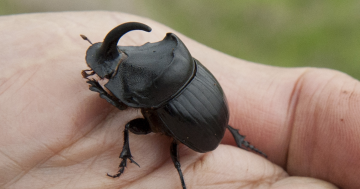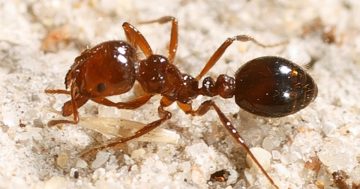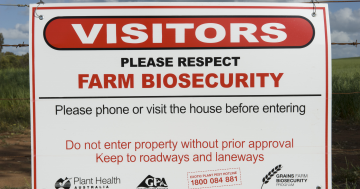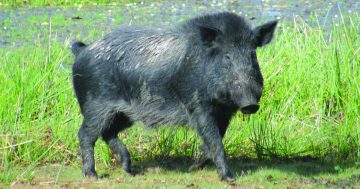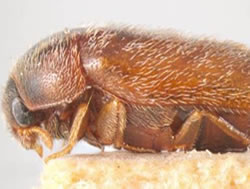 The Department of Agriculture, Water and the Environment (DAWE) is taking urgent actions to aware the general public of the danger of the khapra beetle.
The Department of Agriculture, Water and the Environment (DAWE) is taking urgent actions to aware the general public of the danger of the khapra beetle.
Head of the Biosecurity & Compliance Group at DAWE and Chair of the National Biosecurity Committee, Deputy Secretary Andrew Tongue said the beetle was a highly invasive pest that posed a major threat to Australia’s grains industry.
“Khapra beetle is not present in Australia, but we have recently seen an increase in khapra beetle interceptions as a hitchhiker pest in sea containers,” Mr Tongue said.
“Some of these detections have been in consignments that khapra beetle previously had no association with, and from countries not known to have khapra beetle,” he said.
“We are implementing urgent actions to reduce the risk of khapra beetle entering Australia.”
Mr Tongue said khapra beetles destroyed grain quality making it unfit for human or animal consumption.
“It also poses a human health risk when stored products become contaminated with khapra beetle,” he said.
“The urgent actions are being implemented in phases and are resulting in changes in requirements for imported plant products and sea containers.”
He said Phase 1-3 actions to combat the beetle were introduced in 2020 and 2021 and applied to high-risk plant products, including certain beans, seeds and legumes.
Mr Tongue said the next two phases (Phases 4 and 5) of actions would start this Thursday (28 April) and introduce new requirements for other-risk plant products, and seeds for sowing.
“These plant products and seeds must now be inspected offshore by a government official of the exporting country and be certified (with a phytosanitary certificate) as being free from any species of Trogoderma (dead, alive or exuviae).
He said the changes would impact the general public as well as commercial importers.
“If you are bringing nuts or seeds into Australia via the mail or as an international traveller, you will need a plant health (phytosanitary) certificate,” Mr Tongue said.
Further information on actions to combat the invasive pest can be accessed at this PS News link.


